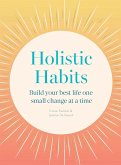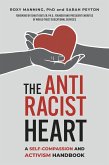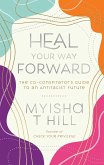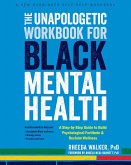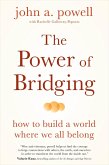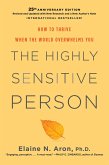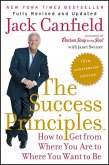Roxane Gay, Megan PillowA Guide to Understanding Power and Creating Change.
Do the Work
A Guide to Understanding Power and Creating Change.
Illustrator: Durand, Aurelia
21,99 €
inkl. MwSt.
Versandfertig in 2-4 Wochen

11 °P sammeln
Roxane Gay, Megan PillowA Guide to Understanding Power and Creating Change.
Do the Work
A Guide to Understanding Power and Creating Change.
Illustrator: Durand, Aurelia
- Broschiertes Buch
- Merkliste
- Auf die Merkliste
- Bewerten Bewerten
- Teilen
- Produkt teilen
- Produkterinnerung
- Produkterinnerung
Confront your biases to change the world! Do The Work is a sharp workbook by educator Professor Roxane Gay and writer Dr. Megan Pillow, who discuss those with power and those without.
Andere Kunden interessierten sich auch für
![Holistic Habits Holistic Habits]() Emine RushtonHolistic Habits18,99 €
Emine RushtonHolistic Habits18,99 €![The Antiracist Heart The Antiracist Heart]() Roxy ManningThe Antiracist Heart29,99 €
Roxy ManningThe Antiracist Heart29,99 €![Heal Your Way Forward Heal Your Way Forward]() Myisha T. Hill (Myisha T. Hill)Heal Your Way Forward33,99 €
Myisha T. Hill (Myisha T. Hill)Heal Your Way Forward33,99 €![The Unapologetic Workbook for Black Mental Health The Unapologetic Workbook for Black Mental Health]() Angela Neal-BarnettThe Unapologetic Workbook for Black Mental Health22,99 €
Angela Neal-BarnettThe Unapologetic Workbook for Black Mental Health22,99 €![The Power of Bridging The Power of Bridging]() john a. powellThe Power of Bridging22,99 €
john a. powellThe Power of Bridging22,99 €![The Highly Sensitive Person The Highly Sensitive Person]() Elaine N. Phd AronThe Highly Sensitive Person37,99 €
Elaine N. Phd AronThe Highly Sensitive Person37,99 €![The Success Principles(TM) - 10th Anniversary Edition The Success Principles(TM) - 10th Anniversary Edition]() Jack CanfieldThe Success Principles(TM) - 10th Anniversary Edition20,99 €
Jack CanfieldThe Success Principles(TM) - 10th Anniversary Edition20,99 €-
-
-
Confront your biases to change the world! Do The Work is a sharp workbook by educator Professor Roxane Gay and writer Dr. Megan Pillow, who discuss those with power and those without.
Hinweis: Dieser Artikel kann nur an eine deutsche Lieferadresse ausgeliefert werden.
Hinweis: Dieser Artikel kann nur an eine deutsche Lieferadresse ausgeliefert werden.
Produktdetails
- Produktdetails
- Verlag: Quarto Publishing PLC
- Seitenzahl: 128
- Erscheinungstermin: 18. Juni 2024
- Englisch
- Abmessung: 207mm x 157mm x 14mm
- Gewicht: 354g
- ISBN-13: 9780711268968
- ISBN-10: 0711268967
- Artikelnr.: 63458756
- Herstellerkennzeichnung
- Libri GmbH
- Europaallee 1
- 36244 Bad Hersfeld
- gpsr@libri.de
- Verlag: Quarto Publishing PLC
- Seitenzahl: 128
- Erscheinungstermin: 18. Juni 2024
- Englisch
- Abmessung: 207mm x 157mm x 14mm
- Gewicht: 354g
- ISBN-13: 9780711268968
- ISBN-10: 0711268967
- Artikelnr.: 63458756
- Herstellerkennzeichnung
- Libri GmbH
- Europaallee 1
- 36244 Bad Hersfeld
- gpsr@libri.de
Roxane Gay is an American writer, editor, professor and activist. She is the New York Times bestselling author of Bad Feminist, a collection of pioneering essays and memoir, Hunger. In April 2018, she was awarded a Guggenheim Fellowship for Creative Arts. She is a leading contributor to The Guardian and The New York Times and has been featured on This American Life and NPR. She lectures at Purdue and Yale. Born in Nebraska to Haitian parents who moved to the US when they were 19 years old, Gay's work deals with the analysis and deconstruction of feminist and racial issues through the lens of her personal experiences with race, gender identity, and sexuality. Her widely acclaimed writing has won multiple awards, and her voice continues to be one of the most important in contemporary conversations about race and gender. Megan Pillow is an American writer, editor, and scholar. She is project manager for Roxane Gay and co-editor of The Audacity, an innovative, integrity-driven newsletter inclusive of diverse voices. She holds an MFA and a PhD. Her work has appeared, among other places, in Electric Literature, Guernica, Triquarterly, and Gay Magazine and was featured in The Best American Mystery and Suspense 2022. Aurélia Durand is a French graphic artist. Her work, which includes the illustrations for the #1 New York Times bestseller This Book Is Anti-Racist , is a vivid celebration of diversity; she dedicates her artistic voice to matters involving representation. Aurélia represents Afro-descendants as joyful, proud, and empowered — a united community whose destinies are intertwined. These colorful personalities present the unified voice of a global community whose hopes, dreams, and desires envision an inclusive future for all. Her work has been featured in advertising campaigns, galleries, and editorial magazines; her clients include Nike, The New Yorker, Facebook, and more. Find her on Instagram: @4ur3lia.
Introduction
SECTION ONE: What is Power?
Theories of power
Interrogate/reflect
SECTION TWO: Who Gets to Have Power?
Power and race
Power, gender identity, and sexuality
Power and ability/disability
Power and money
Power and politics
Intersectionality: a brief primer
Interrogate/reflect
SECTION THREE: What Affects a Person’s Power?
Power and privilege
In your community
Interrogate/reflect
SECTION FOUR: What Can We Do About Power?
Power in conflict
Interrogate/reflect
Practices toward self-awareness
Interrogate/reflect
SECTION FIVE: How Can You Empower Others?
Power and resistance
Steps to empower
Interrogate/reflect
Endnotes
Bibliography
Additional Reading
Biographies
SECTION ONE: What is Power?
Theories of power
Interrogate/reflect
SECTION TWO: Who Gets to Have Power?
Power and race
Power, gender identity, and sexuality
Power and ability/disability
Power and money
Power and politics
Intersectionality: a brief primer
Interrogate/reflect
SECTION THREE: What Affects a Person’s Power?
Power and privilege
In your community
Interrogate/reflect
SECTION FOUR: What Can We Do About Power?
Power in conflict
Interrogate/reflect
Practices toward self-awareness
Interrogate/reflect
SECTION FIVE: How Can You Empower Others?
Power and resistance
Steps to empower
Interrogate/reflect
Endnotes
Bibliography
Additional Reading
Biographies
Introduction
SECTION ONE: What is Power?
Theories of power
Interrogate/reflect
SECTION TWO: Who Gets to Have Power?
Power and race
Power, gender identity, and sexuality
Power and ability/disability
Power and money
Power and politics
Intersectionality: a brief primer
Interrogate/reflect
SECTION THREE: What Affects a Person’s Power?
Power and privilege
In your community
Interrogate/reflect
SECTION FOUR: What Can We Do About Power?
Power in conflict
Interrogate/reflect
Practices toward self-awareness
Interrogate/reflect
SECTION FIVE: How Can You Empower Others?
Power and resistance
Steps to empower
Interrogate/reflect
Endnotes
Bibliography
Additional Reading
Biographies
SECTION ONE: What is Power?
Theories of power
Interrogate/reflect
SECTION TWO: Who Gets to Have Power?
Power and race
Power, gender identity, and sexuality
Power and ability/disability
Power and money
Power and politics
Intersectionality: a brief primer
Interrogate/reflect
SECTION THREE: What Affects a Person’s Power?
Power and privilege
In your community
Interrogate/reflect
SECTION FOUR: What Can We Do About Power?
Power in conflict
Interrogate/reflect
Practices toward self-awareness
Interrogate/reflect
SECTION FIVE: How Can You Empower Others?
Power and resistance
Steps to empower
Interrogate/reflect
Endnotes
Bibliography
Additional Reading
Biographies

